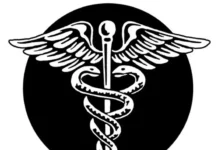
Rae Lewis-Thornton still remembers the moment she found out she had HIV. She was 23, healthy, and working in her dream career as a political strategist. But after donating blood at a drive she had organized, she received a letter in the mail telling her something was wrong.
The subsequent meeting at her local Red Cross office, where she learned she was HIV positive, lasted all of five minutes.
She left that meeting “in quasi-denial and in secret,” she recently told attendees at the National Minority AIDS Council’s U.S. Conference on HIV/AIDS. ”On that first day, I told three people that I had HIV—and it took me five years to tell three more people.”
That was four decades ago. Today, Lewis-Thornton is 63 and believed to be one of the longest surviving women with HIV/AIDS in the United States. She is also an Emmy Award-winning AIDS activist, author, and social justice advocate.
She recently shared her story with NMAC conference attendees who were focused on shining a light on people aging with HIV — a status Lewis-Thornton didn’t expect to achieve in 1987 when she received her diagnosis.
“Within 30 minutes of my speech, I’ve had three people come up and say to me, ‘I’ve been infected for 10 years, and no one knows,’” Lewis-Thornton tells Word In Black.
The Danger of Secrets
Those quiet confessions reflect a larger reality. An estimated 1.3 million people in the U.S. are living with HIV, according to the Centers for Disease Control and Prevention. Nearly 13%, or more than 150,000 people, don’t know their status — and risk unknowingly spreading the virus.
From fear of stigma, to thinking they could never get HIV — or believing they could survive it, many people avoid learning their status or letting others know.
“We cannot kind of live in that level of secrecy,” Lewis-Thornton says. “The secret will kill you quicker than the disease.”
A Disproportionate Toll
This is especially true for Black Americans, who make up 39% of people with HIV, despite representing just 12% of the U.S. population. While recent data show the number of new cases has declined, Black people accounted for 38% of new cases — a rate eight times higher than that of whites.
Black women alone make up 64% of these new cases. The numbers underscore that access to testing, treatment, and honest conversations about stigma are more important than ever.
Talking HIV on TikTok
In recent years, people have been taking these conversations public — sharing their HIV status openly on social media. Some, like TikTok influencer chosenmom417, use their platform to urge women to get tested. Last month, she shared the story of a woman named Renee who learned as a newlywed that her husband had infected her with HIV. She was pregnant with twins when her OB-GYN delivered the news. He had hidden his diagnosis for years and later served nearly five years in prison in Florida for doing so.
“A Cruel and Ugly Time“
Posting on TikTok could be taken “as a level of empowerment to say, ‘this is my life. If you don’t like it, get over it,’” she says.
Lewis-Thornton, who is pursuing a doctoral degree and researching how Black women use digital spaces to heal and confront trauma, says the freedom of sharing your status online was unheard of during the 1990s. She spent seven years strictly avoiding learning about HIV and wouldn’t even watch TV programs about it.
“There were no medicines to treat HIV. They were kicking kids out of school with HIV. Funeral directors were afraid to bury people with HIV,” she says. “It was a cruel and ugly time to be told you had HIV.”
Eventually, she sought medical treatment. And although she developed full-blown AIDS at 30, scientific advancements and new therapies have enabled her to live with HIV/AIDS for decades.
But Lewis-Thorton also says making a social media announcement of your status isn’t the most important thing. It’s more critical to get tested, to use PrEP, and to take the responsibility to be informed about a sexual partner’s HIV/AIDS and STI status.
“We cannot have uninformed sex because there’s too much out there that could affect the rest of your life,” she says. Medication can keep you alive, but being HIV positive “will still affect the rest of your life,” she says.
“Sex without responsibility should not happen,” she says. “And if you are not mature enough to be responsible, then you ain’t mature enough to have sex.”















